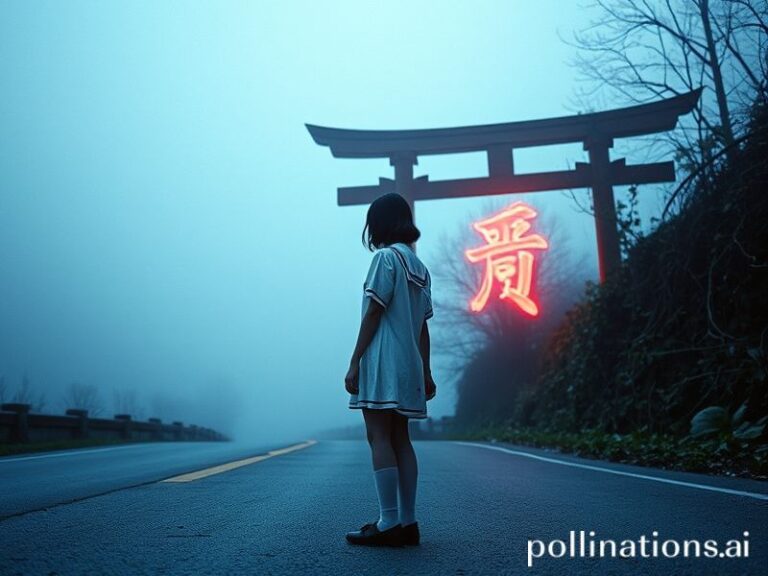Sheridan Smith: Britain’s Sobbing Sweetheart and the Global Business of Celebrity Breakdowns
**Sheridan Smith: Britain’s National Treasure and the Global Theater of Emotional Breakdown**
From the foggy banks of the Thames to the neon-lit karaoke bars of Tokyo, the spectacle of celebrity meltdown has become a universal language—one that transcends borders, tax brackets, and common sense. Enter Sheridan Smith: West End diva, BAFTA-winner, and the latest contestant in the international pageant of public emotional unraveling. While her recent on-stage tears and tabloid tribulations may seem quintessentially British—like soggy chips or passive-aggressive queueing—they are, in fact, part of a global phenomenon: the commodification of celebrity vulnerability.
Once upon a time, Smith was merely a gifted actress with a voice that could make even the most hardened cynic believe in love, hope, and the restorative power of a key change. But in the age of 24/7 surveillance capitalism, talent alone is no longer sufficient. No, darling—you must also be relatable, damaged, and ideally, caught sobbing into a bottle of prosecco on a balcony in Ibiza. Only then can you truly ascend to the ranks of the internationally marketable mess.
From Hollywood to Bollywood, the template is the same: rise, shine, crash, cry, comeback. It’s a narrative arc as old as Icarus, but with better lighting and a Netflix development deal. Smith’s recent struggles—grief, anxiety, the pressure of being “on” all the time—are not unique to her or even to celebrities. They’re just more visible. In a world where your Uber driver has a podcast and your barista is branding her breakdown on TikTok, emotional collapse has become the last honest currency. And Smith, bless her, is rich in it.
But let’s zoom out, shall we? Because while Britain wrings its hands over whether Sheridan will return to *Joseph* or join the growing cast of *I’m a Celebrity, Get Me Out of Rehab*, the rest of the world is busy monetizing its own nervous breakdowns. In South Korea, K-pop idols are contractually obligated to apologize for dating. In Russia, oligarchs vanish from yachts only to reappear in therapy. In America, congresswomen livestream their panic attacks. It’s a brave new world where trauma is content and vulnerability is just another revenue stream.
And yet, there’s something almost quaint about Smith’s particular brand of despair. She hasn’t blamed the Illuminati, joined a cult, or launched a crypto wellness coin. She just… cried. On stage. While singing. Which, in 2024, feels almost radical. No filters, no teary TED Talk about “boundaries,” no curated Instagram grid of healing crystals and journal prompts. Just a woman, a microphone, and the crushing weight of expectation. How terribly, tragically British.
Of course, the international press has had its fun. *Le Monde* called her “la Dame aux Camélias of the Midlands.” *Der Spiegel* ran a think-piece titled “Sheridan Smith and the Tyranny of the Smile.” Meanwhile, in the U.S., *Variety* briefly confused her with a character from *Downton Abbey* and ran a mournful obituary for Lady Edith. Such is the price of fame in the global village: misidentification, misquotation, and the occasional mistranslation that turns “I’m having a tough time” into “I am declaring war on Liechtenstein.”
Still, Smith endures. Because that’s what we do, isn’t it? We break, we weep, we belt out a show tune, and we carry on. In a world teetering on the edge of ecological collapse, political absurdity, and the slow death of nuance, perhaps there’s something oddly comforting in watching a woman fall apart in perfect pitch. It reminds us that even in the age of AI and influencer austerity, some things remain stubbornly, gloriously human.
So here’s to Sheridan Smith: not just a national treasure, but a global mirror. Reflecting our collective exhaustion, our hunger for authenticity, and our endless appetite for watching beautiful people cry in public. May her next act be less tragic, more triumphant—and if not, well, at least it’ll make great television.







